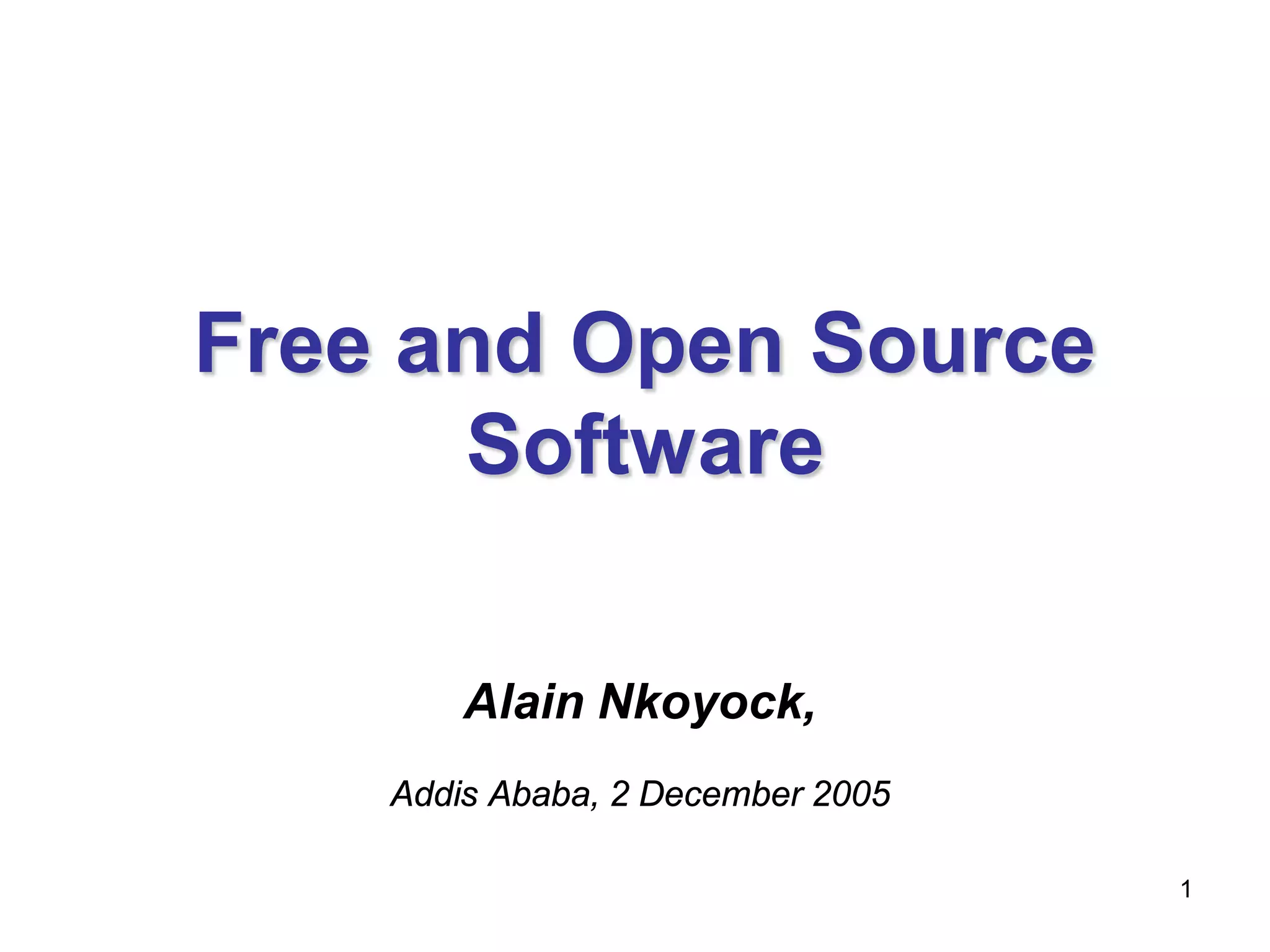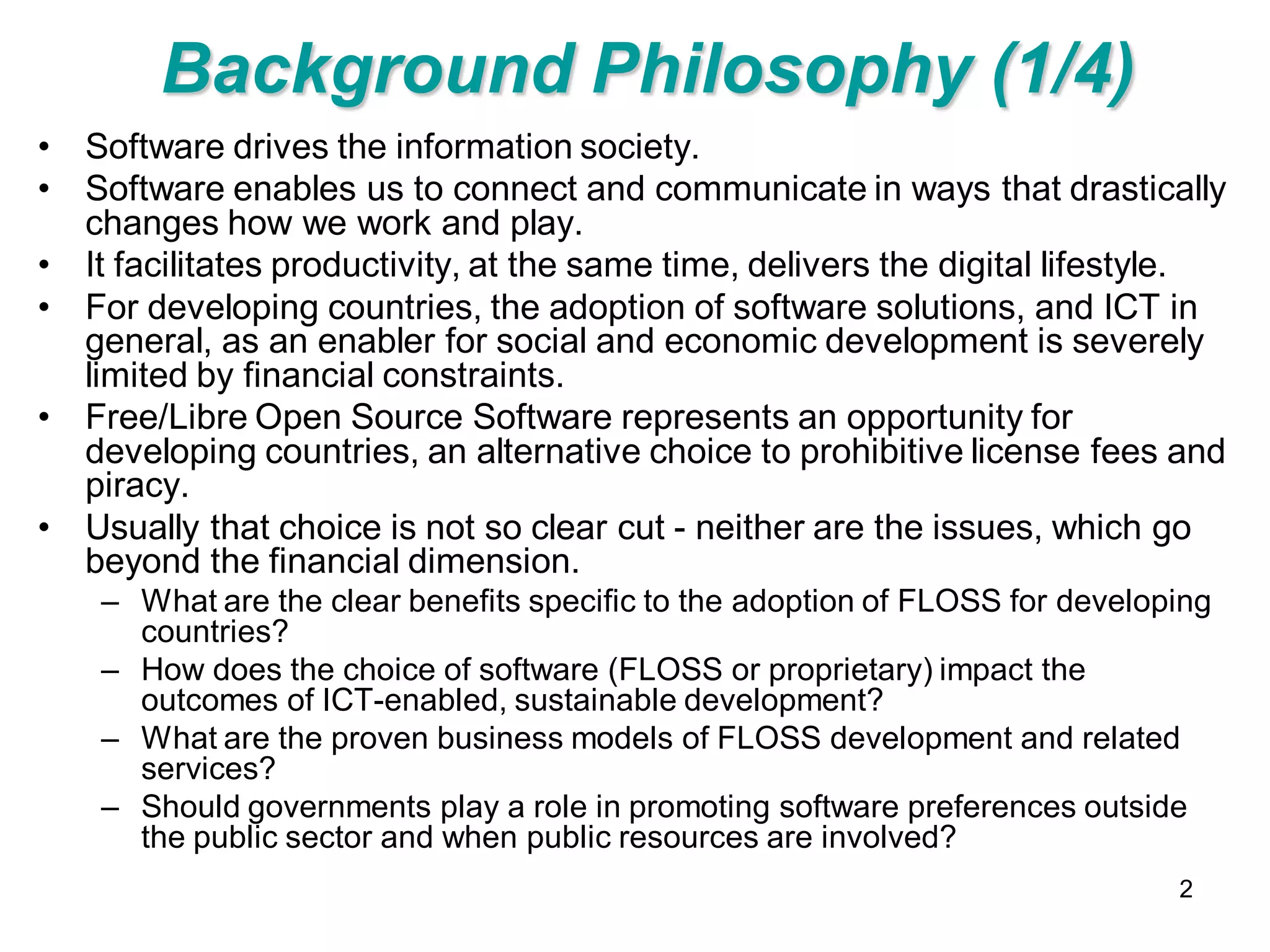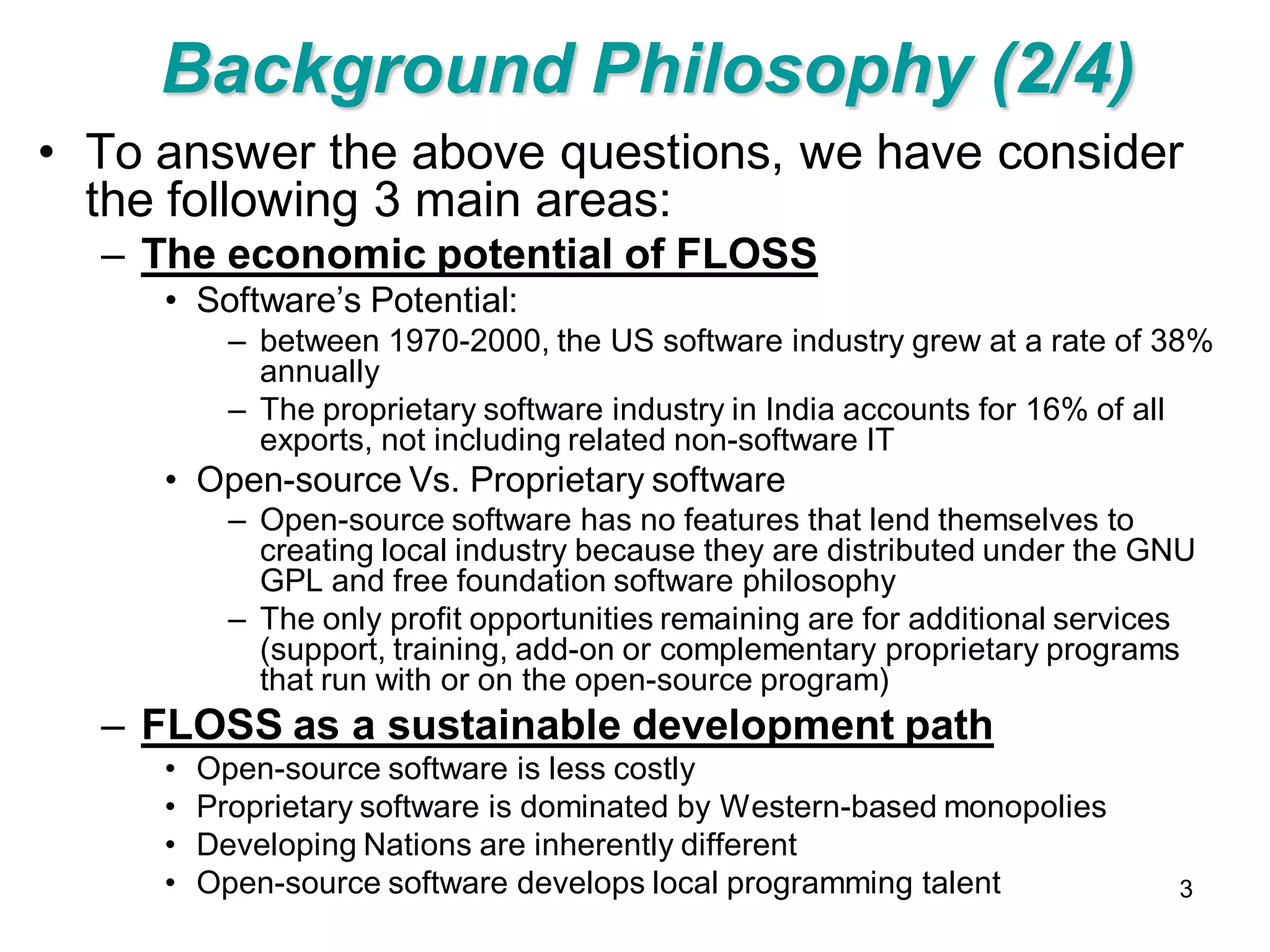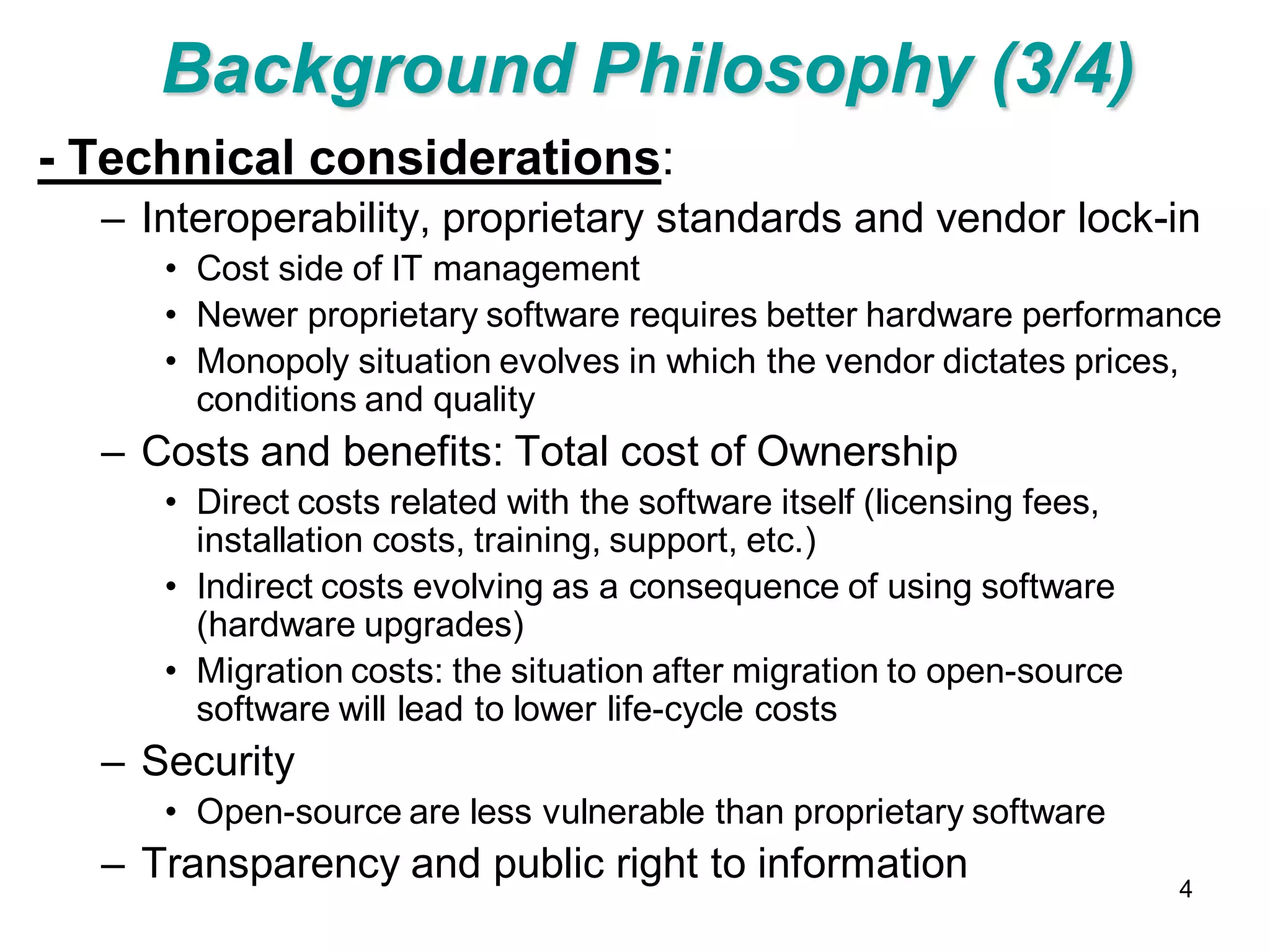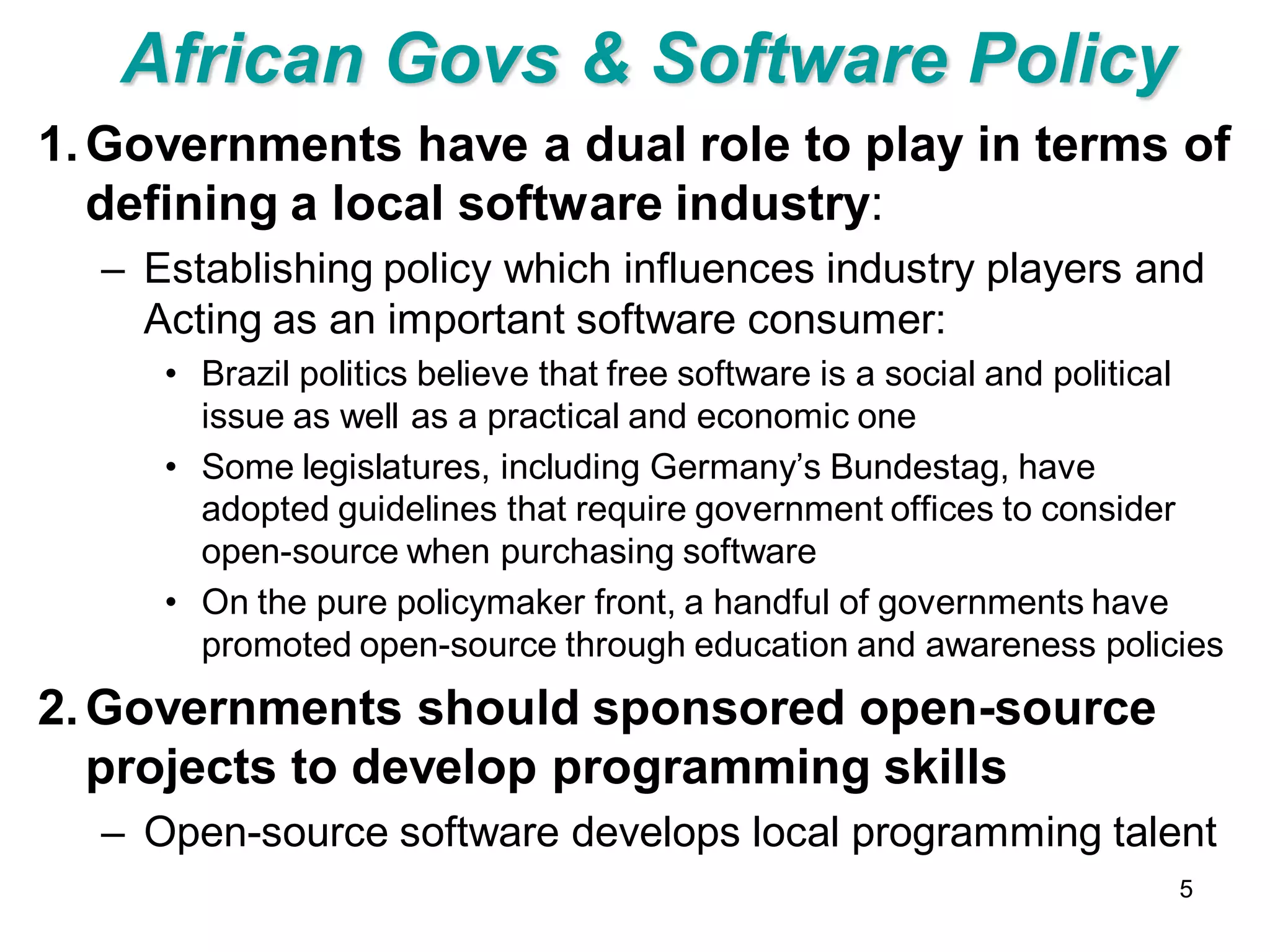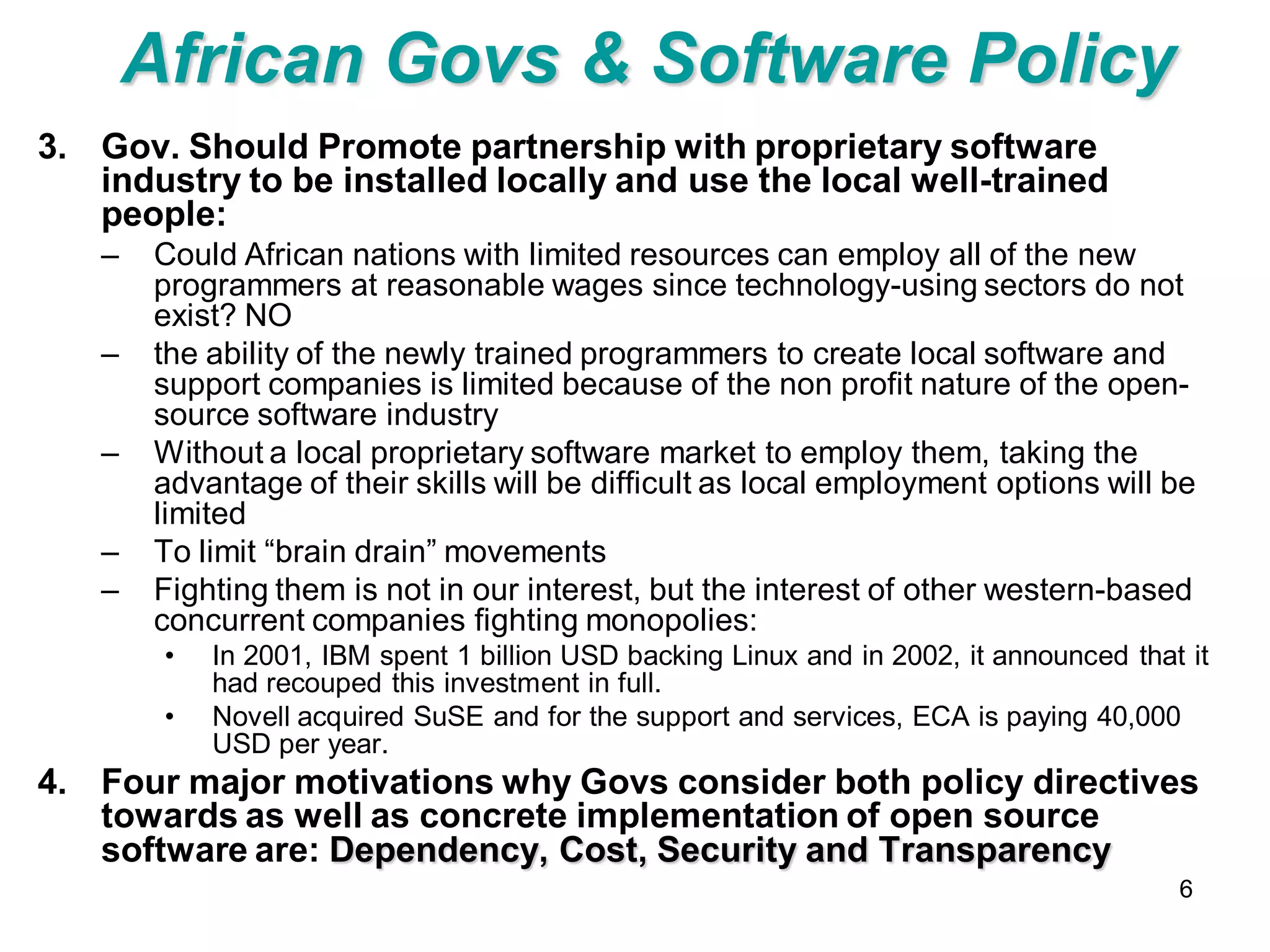This document discusses the potential benefits of free and open source software (FLOSS) for developing countries. It addresses four questions: 1) the clear economic benefits of FLOSS adoption, 2) how software choice impacts ICT-enabled development, 3) proven FLOSS business models, and 4) the role of governments in promoting software preferences. The document argues that FLOSS represents an opportunity for developing countries by reducing costs compared to proprietary software licenses and piracy. It also asserts that FLOSS can develop local programming talent and industries while avoiding vendor lock-in. Governments are encouraged to support FLOSS through education, sponsorship of projects, and partnerships between proprietary software companies and local programmers.
